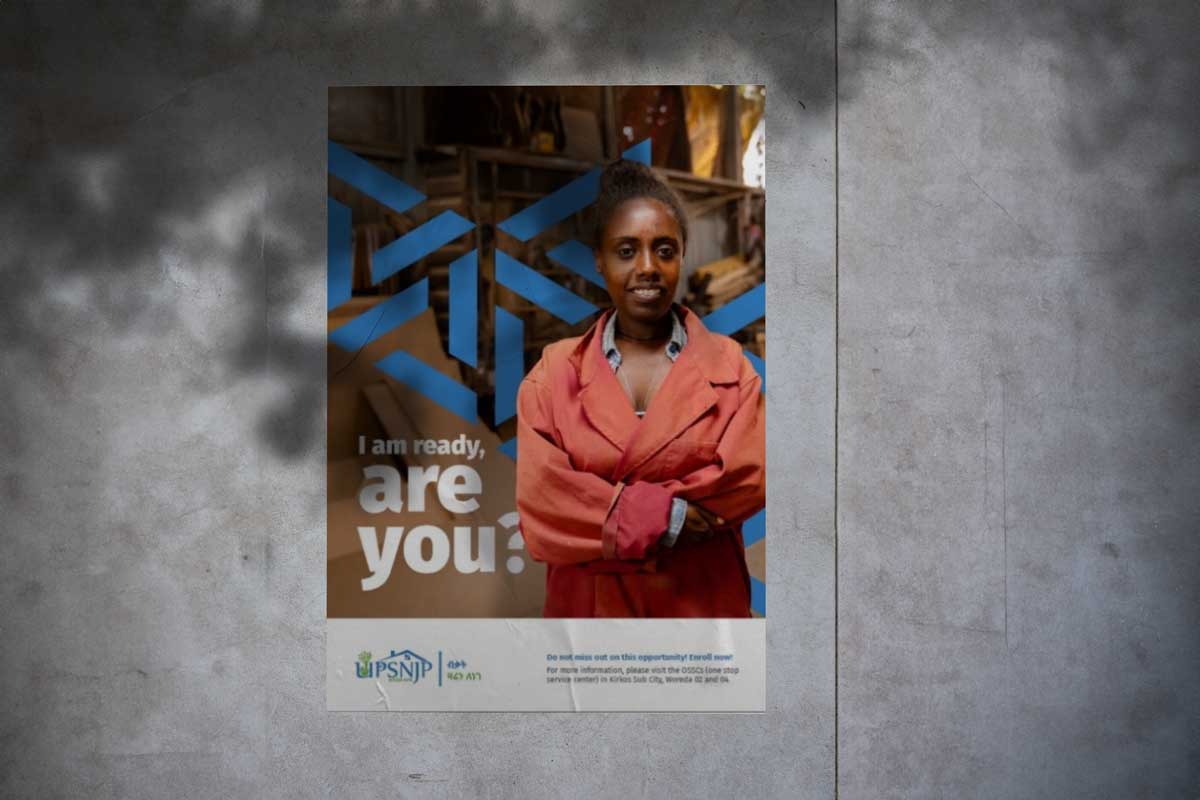 UPSNJP beneficiary working in a garment factory. Photo: Ethiopia Ministry of Labor and Skills
UPSNJP beneficiary working in a garment factory. Photo: Ethiopia Ministry of Labor and Skills
Authors of this blog: Tirsit Amha, Koen Maaskant, Suleiman Namara, Niyat Nuru, Ayuba Sani Hussein, Andrea Vermehren
For the first time in her life, Kalkidan is getting a paycheck. But she’s the exception not the rule because many in Ethiopia’s large, young population are not reaping the benefits of paid work.
Unemployment, which in Ethiopian cities has already reached 26%, is disproportionally made up of youth with secondary (high school) education at best. And, though most Ethiopians currently live in rural areas, the urban population is expected to double—from 20% now to nearly 40% by 2050−only adding to the number of urban young who, in the near future, will be looking for jobs.
As one of 60,000 young Ethiopians taking part in the World Bank’s Urban Productive Safety Net and Jobs Project (UPSNJP) Youth Employment Program, Kalkidan was taught a skill. “The training had a crucial impact on my life,” she said. “I do not have to sit at home without a job. It gives my mind freedom and helps me improve my income.”
Implemented by the Ministry of Labor and Skills (MoLS) and Ministry of Urban Development and Infrastructure, the program lives up to its name—Bikat, to enable—by improving the ability of these young job seekers to signal their potential to employers through practical experience in the private sector. Bikat helps its participants find six months of on-the-job training and provides coaching, mentoring, and soft skills training. Its life skills training focuses on time management, communication, and other interpersonal skills. Once young participants complete half their apprenticeship, they get basic digital literacy training in partnership with Microsoft Philanthropies and Solutions for Youth Employment. Microsoft contributes the curriculum and free access to its online course platform. After finishing the apprenticeship, youth receive job search training.
Placing young people in jobs
With support from the World Bank’s UPSNJP, the Bikat Program has been effective at getting young Ethiopians into jobs: Following the pilot, almost 7,000 youth have been placed in apprenticeships in Addis Ababa, the Ethiopian capital, a city with a population of close to 5.5 million. More than 8,000 more youth, who have completed life skills training in nine, other Ethiopian cities, are getting ready for interviews with firms to find their first positions. There are plans for more cohorts of participants. The program is reaching many young women and helping them grow in the workplace: 73% of participants are young women; 20% of the youth placed in jobs are mothers.
To be able to do this, Bikat channeled resources into outreach, targeting youth, as well as potential employers in the job market The pilot also demonstrated the need to involve local government, given its knowledge of and connections with the target youth population.
The program has tailored the selection process to job objectives. After selecting participants, double the quota of youth are invited to life skills training, after which each person is given interviews with multiple firms, allowing both the firms and interviewees to look for the best match. By over-selecting youth, and by using several rounds of interviews, the program provides value for firms and gives youth plenty of opportunities to practice interviewing. Structured interviews make recruitment more formal and less dependent on referrals within established networks, which can exclude disadvantaged groups.
Given the limited number of public-private partnerships in Ethiopia, the use of private service providers to reach out to businesses and screen, monitor, and select them, has proved crucial. These providers take the lead, visiting businesses to look at their interest in recruitment and check workplace Occupational Health and Safety Standards. They also organize the interviews between the young participants and firms. As Bikat expands, the program will need to attract placements in the service sector instead of manufacturing, because many young people in Addis Ababa prefer to work in services.
In the process, the Ethiopian government is learning more about effective program delivery and is also expanding its use of digital systems. Initially, Bikat was mostly paper-based, but its registration system is now digitized, as well as its systems for selection and monitoring. The MoLS and private providers have played an important role in this, laying the foundations for a more extensive Management Information System.
While events impacting Ethiopia, such as conflict and COVID-19, could have decreased demand for new workers, the program has not faced major challenges in attracting firms and job placements to take part. With its strong outreach, partnerships, and systems, the UPSNJP Bikat Program aims to reach tens of thousands of youth across cities in Ethiopia over the next few years, making an impact for youth and the country’s economy.




Join the Conversation